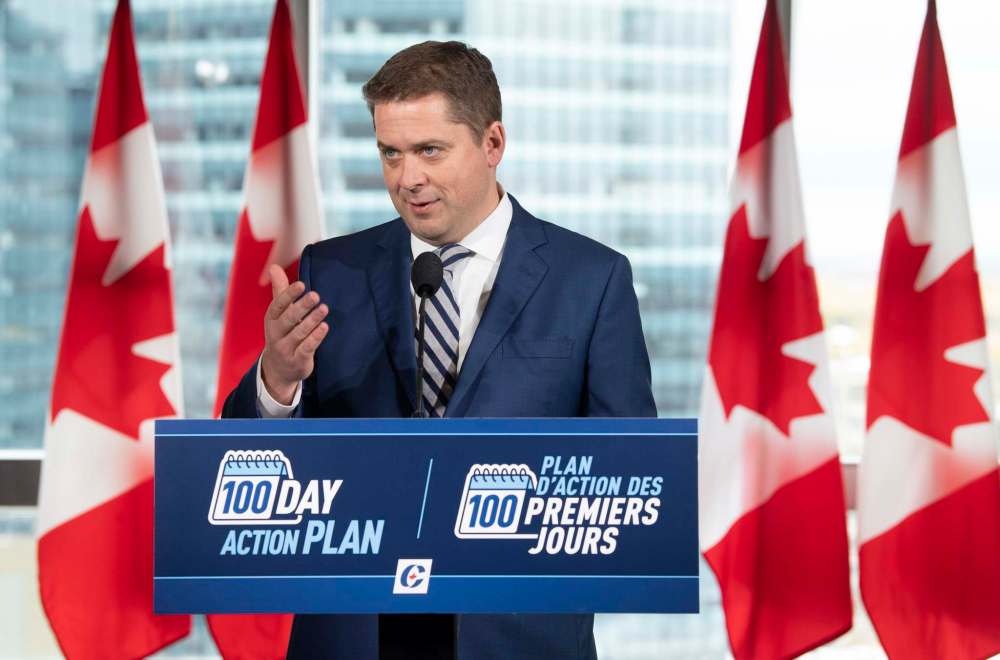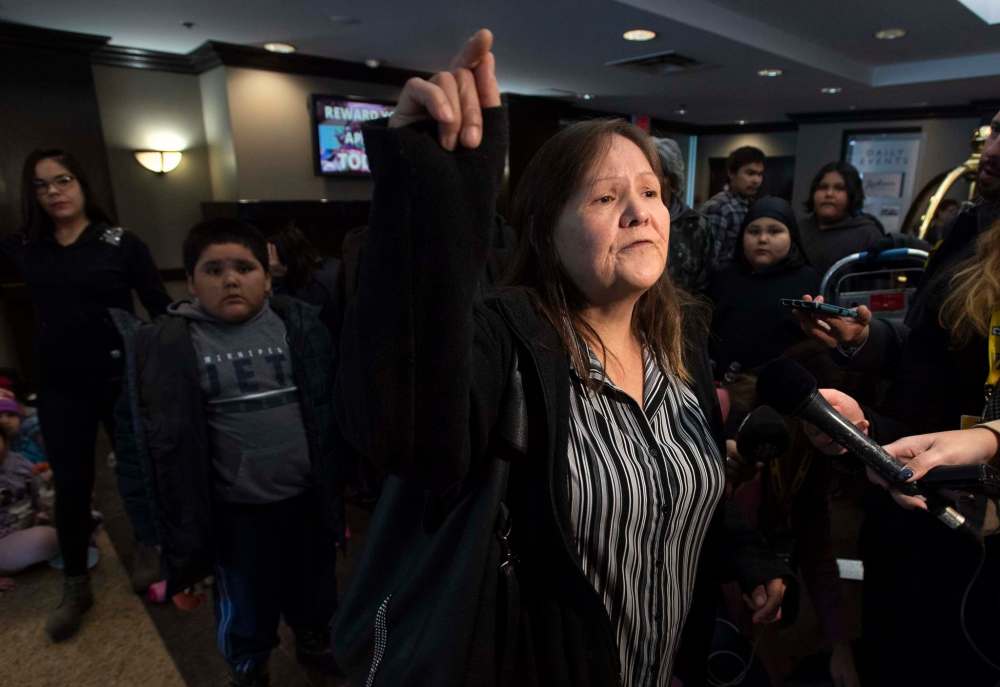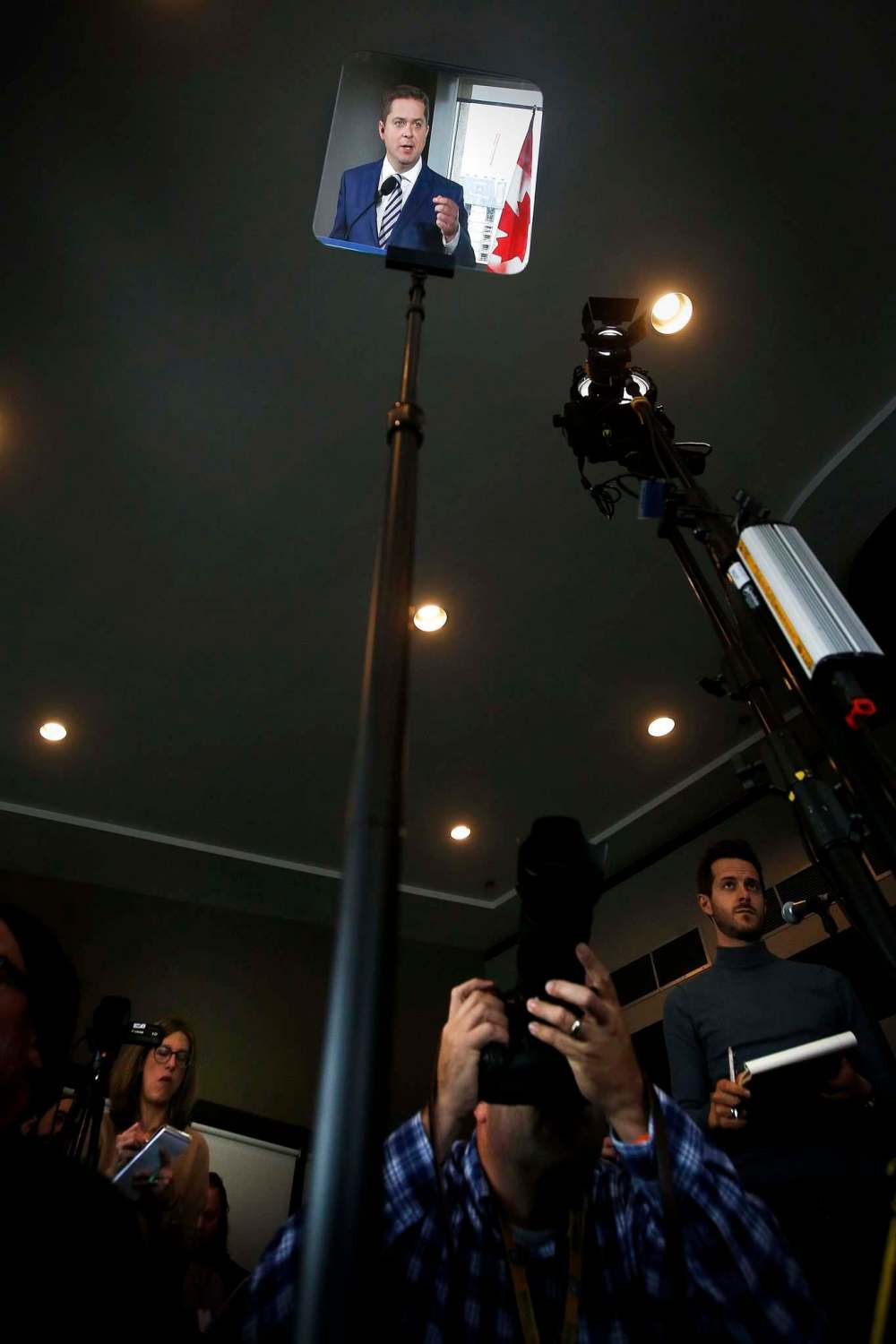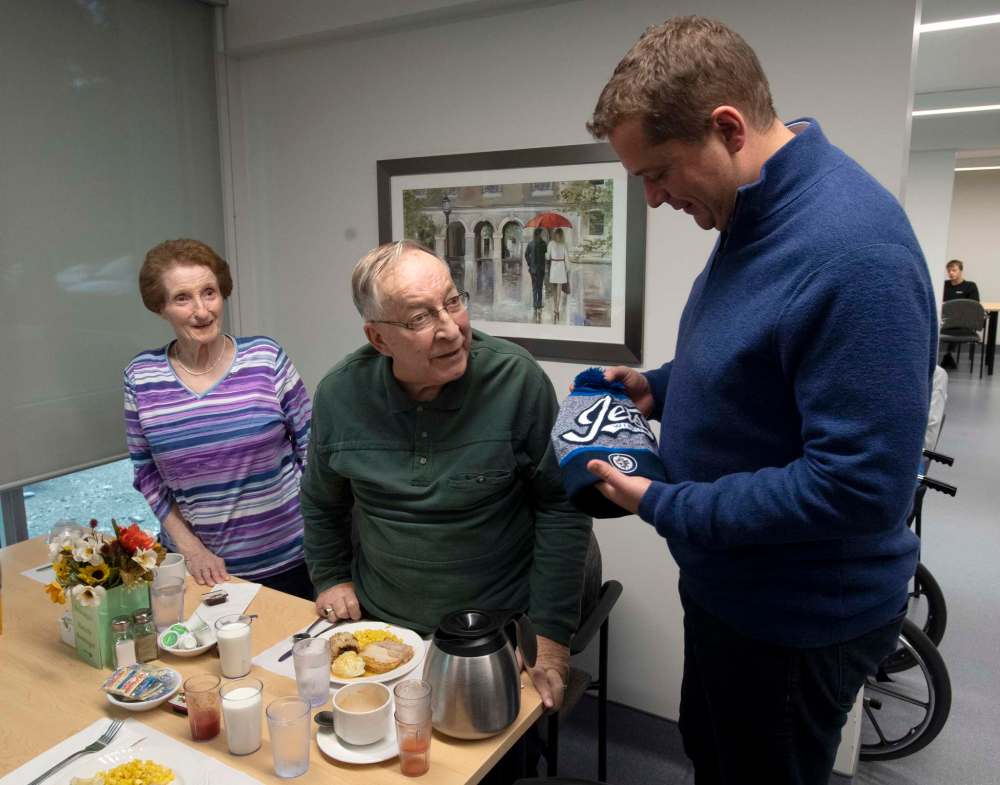Scheer riles evacuees with campaign stop in midst of crisis
Advertisement
Read this article for free:
or
Already have an account? Log in here »
To continue reading, please subscribe:
Monthly Digital Subscription
$0 for the first 4 weeks*
- Enjoy unlimited reading on winnipegfreepress.com
- Read the E-Edition, our digital replica newspaper
- Access News Break, our award-winning app
- Play interactive puzzles
*No charge for 4 weeks then price increases to the regular rate of $19.00 plus GST every four weeks. Offer available to new and qualified returning subscribers only. Cancel any time.
Monthly Digital Subscription
$4.75/week*
- Enjoy unlimited reading on winnipegfreepress.com
- Read the E-Edition, our digital replica newspaper
- Access News Break, our award-winning app
- Play interactive puzzles
*Billed as $19 plus GST every four weeks. Cancel any time.
To continue reading, please subscribe:
Add Free Press access to your Brandon Sun subscription for only an additional
$1 for the first 4 weeks*
*Your next subscription payment will increase by $1.00 and you will be charged $16.99 plus GST for four weeks. After four weeks, your payment will increase to $23.99 plus GST every four weeks.
Read unlimited articles for free today:
or
Already have an account? Log in here »
Hey there, time traveller!
This article was published 14/10/2019 (2257 days ago), so information in it may no longer be current.
WINNIPEG — First Nations residents forced to evacuate their Manitoba homes after a recent snowstrom expressed frustration Monday that Conservative Leader Andrew Scheer was campaigning in the area instead of helping out.
Though NDP Leader Jagmeet Singh said he’d changed his own travel plans to avoid the province, Scheer’s itinerary was not adjusted, and he dodged questions about whether he too should have considered another plan.
Scheer said his heart went out to those affected by the storm, and said he made a personal donation to the Red Cross. He also said he didn’t want to interfere with the clean-up efforts. When pressed, he wouldn’t say how much he donated nor when the donation was made.

Scheer’s press secretary later told the Free Press that the leader made the donation in response to the provincial state of emergency. Scheer was also asked whether his team’s presence in the city would take up hotel space as evacuees flow into the city. His secretary later said the Conservative contingent was not staying overnight.
“We are sending our best wishes, our hearts are going out to those people who are affected by the storm,” he told reporters.
“We know the important work to clean up afterwards and get power restored is underway, and we certainly hope that happens as quickly as possible.”
Approximately 20,000 Manitoba homes and businesses remained without power Monday in the wake of a snowstorm that the province’s Crown energy utility said had left an unprecedented amount of damage to transmission lines and towers. It could take more than a week to repair.
Premier Brian Pallister had declared a state of emergency early Sunday morning.
Scheer’s campaign pulled into the Radisson Hotel in downtown Winnipeg midday Monday for the first stop on the last week of the election.
His theme for the final days is to lay out what a Conservative government would do during its first 100 days in office.
He promised Monday to table a fiscal update within 45 days of forming government that would include implementing tax credits for green home renovations, public transit and children’s arts and fitness programs by Jan. 1, 2020.

But his message track was quickly derailed when his campaign team walked into the lobby to find babies, teenagers, their parents and grandparents from Lake Manitoba impatiently milling around.
Their First Nation was one of six evacuated after the storm, and one resident nearly broke down in tears as she described what her family had been through since their power cut out on Saturday morning.
Margaret Missyabit said she walked from her house to her brother’s, after failing to get any information by phone on when the power might come back on. It was there she learned they were being evacuated.
Many people had little time to take anything but the clothes on their back, and since arriving in Winnipeg have been given no support beyond a hotel room and meal vouchers from local authorities.
She grew agitated when asked whether she thought Scheer should be campaigning in the area.
“No,” Missyabit exclaimed.
“He should be helping out, if he wants to campaign he should help the people.”
Missyabit said the government needs to step up and help not just her community, but the thousands of others unsure of where they will sleep tonight.

Her family was in the process of being moved out of the Radisson, and she had no idea where they were going next, she said.
“We’re not animals to be shuffled around like this. It’s frustrating.”
Scheer’s campaign said they did not know the hotel was being used as a temporary residency, and did not request for the group to be moved to another location.
“Andrew Scheer is going to be here, and I wish I could be there to challenge him to go down to the Red Cross and see what it’s like to be a First Nations person. (If he) goes down there and we can help people get the basic necessities in life–food, water, shelter–then he’s the man for the job. I’ll vote for him if he can do that,” Lydia Daniels of Long Plain First Nation said.
Winnipeg is a potential hot spot for Conservatives this election. The Liberals took seven out of eight seats in the city in 2015, a feat not expected to be repeated this time around.
But Scheer warned those thinking of casting a ballot for them that if they do, they’ll just end up with a coalition government comprised of the Liberals and NDP, and the result will be life that’s just more expensive for everyone.
“I do not believe that Canadians want a Trudeau-NDP coalition, a government where Justin Trudeau may be the spokesperson but the NDP are calling the shots.”
Scheer campaigned later Monday in one riding the Conservatives are hoping to win back from the Liberals: Kildonan-St.Paul. Scheer visited an assisted living facility with local candidate Raquel Dancho. The duo poured coffee and tea for residents and made small talk about the food, and the Thanksgiving holiday.

One man said to Scheer: “you look familiar,” to which he replied “I hope so.”
Another resident appeared to know exactly who he was, as she pressed him on his position on pharmacare. Jeanette Goertzen told him she is Metis, and has limited drug coverage. She pointed to her hearing aid, noting it cost her thousands, and she did not recoup the full cost from the province.
Scheer told her his government is committed to not cutting the amount of money they transfer to the provinces for health care, and she nodded, saying later she appreciated the answer.
— The Canadian Press, with files from Ben Waldman




